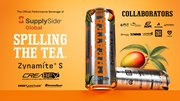Blog
Slow To Hire Fast To Fire? Dont Get Kicked In The Assets
October 21, 2015
TAGS: bulk vending, coin machine, coin-op machine, coin-op industry, vending machine, bulk vendor, coin-op business, small business, vending, vending operating, Vending Times editorial, Hank Schlesinger, hiring employees, training employees, employ value, professional development |
A popular catchphrase propagated by business consultants over the past few years is, "Slow To Hire, Fast To Fire." It is an easy-to-remember rhyme scheme, so it must be true, right? The phrase implies a cautious attitude towards growth, the ability to take decisive action, corporate flexibility and hardnosed pragmatism. Reading it on a PowerPoint presentation during an early breakfast seminar, you might even remember it by lunch. What more could you want in a business slogan?
A friend recently reminded me of just how wrong this slogan is. He's a guy who unashamedly made enough money during the dot-com boom to look out at the world with a sense of detached bemusement. He's a big fan of human folly. Such an attitude may be expensive to acquire, but is still preferable to the bargain basement rants and false authority of the "drunk uncle."
"I just read that bank laid off a couple thousand," he said. "How much data do you think they're putting out on the street?"
Truthfully, I didn't know what he was talking about and said as much.
"Think about it," he said. "These are companies that spend a fortune on IT security. They don't toss a laptop or phone without wiping the drives or calling in a service to destroy them. They shred tons of paper. But they lay off thousands that have god-knows-what in their heads or what they downloaded. And some of these people are not in a good mood about being tossed."
He had a point, and one that relates to coin-op. I remember a story from years ago about a route driver who was downsized out of a job. The driver, a family man, continued to service locations. He used duplicate keys, and he meticulously replaced the 850-ct. ball gum to hide the thefts. His scam might have gone on forever had the owner not spotted him servicing a machine, by chance.
What my friend did not take into account is all of the legitimate ways the "slow hire, fast fire" philosophy can harm small and midsize businesses. In many instances, even low-level employees have an enormous and intimate understanding of the business for which they work, including account preferences and customer names; they might even have relationships with customers. Had the former route-driver-turned-thief chosen to go into the vending business for himself, he would have been a legitimate competitor, rather than a felon.
Taken to the next level, there are the wasted hidden costs, too. Employees with several years on the job represent an enormous investment, for an employer. Not only do these employees become more efficient, but they also tend to build professional relationships that enhance that day-to-day efficiency. That's one reason why many companies with high turnovers tend to be less efficient and less profitable. This may not be a death spiral, but it can be an efficiency spiral that hits at the bottom line.
Though not generally quantified by small and midsize businesses, the time invested in training and "getting up to speed" is significant. The use of technology, along with well-designed and clearly defined procedures, can mitigate this problem, but cannot eliminate it. There really is no substitute for experience.
According to my friend, what generally accounts for the "slow hire, fast fire" philosophy is a time horizon that doesn't extend beyond the quarterly or yearly reporting. "Just give me 20 of those guys that bank dumped and I could make a fortune," he said. "It'll just take a little while."







